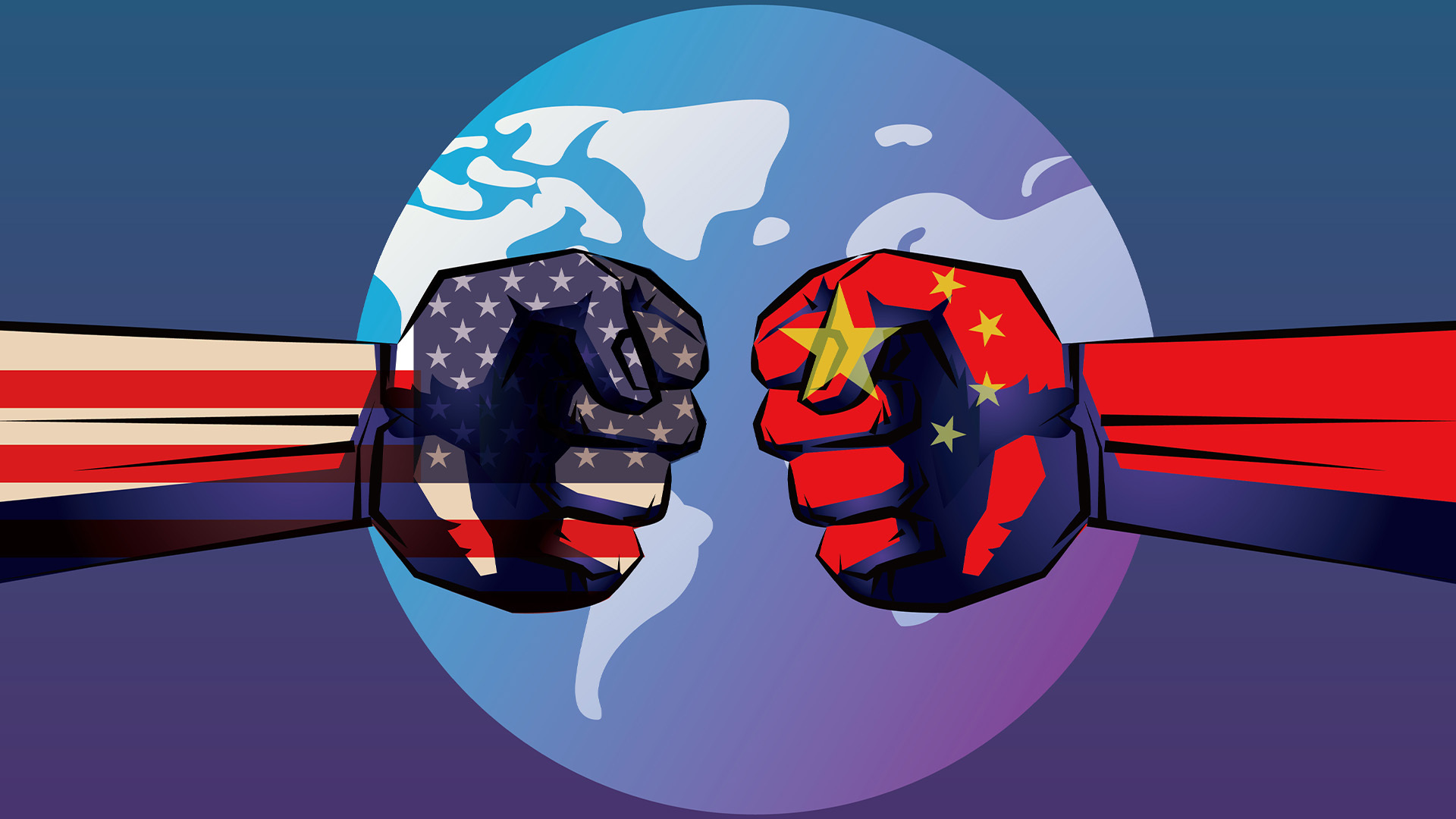
Simone Del Rosario: The International Monetary Fund on Tuesday gave a good news-bad news forecast on the world economy in the coming years.
Pierre-Olivier Gourinchas, IMF Chief Economist: Let me start with the good news. The battle against inflation is almost won.
Simone Del Rosario: But while declaring near victory on the inflation front and stabilizing global growth, the IMF warned trade restrictions could put major downward pressure on the latter.
Now, the global financial agency says they’re specifically not commenting on certain elections or proposals by presidential candidates.
Former President Donald Trump: The higher the tariff, the more likely it is that the company will come into the United States and build a factory in the United States so it doesn’t have to pay the tariff.
Simone Del Rosario: Those promises aside, the IMF says already in the trade-restrictive landscape between the U.S., China, and the EU, they’ve seen a tripling in trade-distorting measures from 2019 to now.
IMF’s Chief Economist says it’s a direction they’re very concerned about.
Pierre-Olivier Gourinchas: When we look at the impact that rising trade tensions could have, there are two dimensions of this. One is, of course, increasing tariffs, for instance, between different blocs that will disrupt trade, that will misallocate resources, that will weigh down on economic activity. But there is also an associated layer that comes from the uncertainty that increases related to future trade policy, and it will also depress investment, depress economic activity and consumption. And when we put these two together, what we find is we find an impact on world output that is of the order of about 0.5% of output levels in 2026. So it’s a quite sizable effect of both an increase in tariffs between different countries and an increase in trade policy uncertainty.
Simone Del Rosario: And he says it’s not just something that ultimately harms the global economy.
Pierre-Olivier Gourinchas: They’re also hurtful for the countries that implement them as well, because of the impact on global trade also makes the residents of the country poor.
Simone Del Rosario: It’s not a new view for economists worldwide. The nonpartisan Peterson Institute for International Economics estimated Trump’s higher-end tariff proposals would cost the typical U.S. household $2,600 a year.
But it’s a finding the Republican candidate rejects.
Bloomberg: That is going to have a serious effect on the overall economy. Yes, you’re going to find some people who will gain from individual tariffs. The overall effect could be massive –
Trump: I agree it’s going to have a massive effect. Positive effect. It’s going to be a positive, not a negative.
Bloomberg: Well we’re just –
Trump: Let me just tell you, no no no, let me just, I know how committed you are to this. It must be hard for you to, you know, spend 25 years talking about tariffs as being negative and then have somebody explain to you that you’re totally wrong.
Simone Del Rosario: In the latest AP-NORC poll, former President Donald Trump has a very slight edge on Vice President Kamala Harris when it comes to whom voters trust more with the economy.
That gap widens in Trump’s favor when it comes to tariffs.
When it comes to the current state of the economy, only 38% say it is somewhat or very good. The results are drastically different depending on the voter’s political party.
Despite the vibes inside the country, the IMF rates the U.S. economy as “very good.”
Pierre-Olivier Gourinchas: There is strong productivity growth that we see when we look at the US, that’s somewhat unlike other advanced economies, in fact, when we look around the world.
Simone Del Rosario: The IMF expects the U.S. economy to grow at a 2.8% rate in 2024, compared to 1.8% among advanced economies as a whole.









